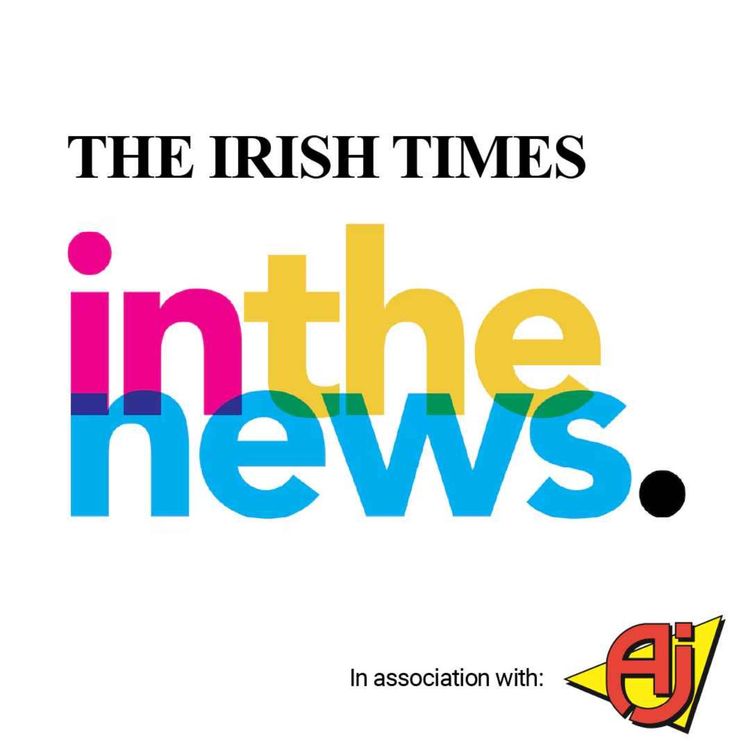Share

In The News
'They're eating the pets' - how Trump's debate went off the rails
Kamala Harris needed a win on Tuesday night's US presidential election debate. After an initial honeymoon period as Democratic nominee, her campaign on the ground was running out of steam. Now she and Donald Trump are neck and neck in the polls of key battleground states. All he had to do on Tuesday night was keep his cool and stick the script provided by advisers. Instead, he made a string of rambling statements that ranged from the baseless to the downright absurd. But given how polarised the country now is, the victor of the debate depends on viewers' own political allegiances. So how much of a difference will the performances have in the minds of Americans? Can Harris' debate win do anything to change her trajectory? Irish Times Washington Corresondent, Keith Duggan, reports from Philadelphia where the debate was held.
Presented by Bernice Harrison. Produced by Declan Conlon and Aideen Finnegan.
As we head into the New Year, The Irish Times wants to hear listener feedback on our two news podcasts; In The News and our more recently released sister podcast Early Edition.
This survey is open to anyone who has listened to either In The News or Early Edition- whether you listen regularly, occasionally, or have listened in the past.
This survey should take around 3-5 minutes to complete. All responses are anonymous.
More episodes
View all episodes

Why Spain plans to ‘regularise’ 500,000 undocumented migrants
17:17|In late January, the Spanish government announced a mass legalisation scheme which will provide migrants with a one-year, renewable residency permit, allowing them to be hired legally.Opening for applications next month, it will benefit about half a million people.For socialist prime minister Pedro Sánchez, the move is about the Spanish values of dignity, community and justice. It also makes the country an outlier in Europe.So who are the migrants likely to benefit from the amnesty and why, at a time when its European neighbours are tightening the rules around undocumented arrivals, has Spain offered such a sweeping amnesty. How will it work and how have Sanchez’s political opponents reacted? And will any other country in the bloc be encouraged to copy the Sanchez plan.Presented by Bernice Harrison. Produced by Suzanne Brennan.
Irish man on trial in Budapest for killing American nurse
18:00|A Dublin man who admitted killing a young American nurse in Budapest in November 2024 will face trial in April. He has pleaded not guilty to murder, insisting her death was the result of an accident during consensual sex.The 38-year-old, who cannot be named for legal reasons, previously admitted to killing Mackenzie Michalski (31) during a sexual encounter and hiding her body.At a preliminary hearing in February, the man’s lawyer made an application to have his client released with an electronic tag until the end of his trial. The court heard that his parents had purchased a flat in the Hungarian capital for this purpose and were willing to put up more than €50,000 for bail. The application was rejected.Hungarian journalist Bálint Dömötör details the case.Presented by Bernice Harrison. Produced by Suzanne Brennan.
Trump's Iran war: Is there a plan, and do Americans support it?
13:50|US president Donald Trump came to power promising an end to foreign entanglements. Instead he has ramped up American aggression against its enemies. The weekend's attack that killed Iran's Supreme Leader Ali Hosseini Khamenei along with regime leaders and hundreds of others, including civilians, was his most extreme move yet. But it was done without the constitutionally required approval of Congress, and with polls showing little public support. Washington correspondent Keith Duggan reports on what was behind US president Donald Trump's decision, how it is being received in the US and what happens next.
Why is Ireland buying weapons from France?
22:00|Ireland is to buy hundreds of new armoured vehicles and artillery pieces from France, a move that will significantly expand the capabilities of the Irish Army to conduct on-island defence.The deal is expected to be worth €600 million and is the biggest investment in Army equipment in the history of the State. It is one of several deals with French suppliers to provide a range of equipment and services with an estimated €2billion spend.The coming years will see Ireland work in closer co-operation with our European neighbours on security matters.Irish Times crime and security correspondent Conor Gallagher explains why Ireland has chosen France as its supplier of choice for the modernisation of our defence capabilities.Presented by Bernice Harrison. Produced by John Casey.
Inside the Black Axe raid: What gardaí found in operation targeting global crime gang
25:52|When gardaí raided the homes of 11 senior members of the Black Axe crime organisation this week they found more than they expected.As well as data-crammed mobile phones and laptops, they found merchandise emblazoned with the logo of the international fraud and money laundering gang.The caps and bags – the sort of memorabilia a golf club might offer – feature “Ireland” and also slogans such as “Ireland Zone, Stay Safe”.The gang has a significant operation in Ireland, having been linked to the theft and laundering of €94 million since 2020. Gardaí have arrested 636 people in relation to Black Axe activities, with 1,400 potential suspects. The gang originates in Nigeria.Also seized was something that will be of interest to law enforcement agencies around the world: a copy of the gang’s constitution. Security sources believe it is the first time the document has ever been found by a police force in a western country.Irish Times crime and security correspondent Conor Lally explains how the Black Axe gang operates in Ireland and the threat its growing membership poses.Presented by Bernice Harrison. Produced by Suzanne Brennan and Andrew McNair.
The killing of 'El Mencho': Why Mexico decided to take on the cartels
15:56|On Sunday, authorities in Mexico attempted to capture the notorious cartel boss known as “El Mencho”.They tracked Nemesio Rubén Oseguera Cervantes down to a cabin in the western state of Jalisco – his stronghold – and he was fatally wounded in the raid. The firefight also killed several of his heavily-armed accomplices, including his likely successor.He was head of the Jalisco New Generation Cartel (CJNG), known for trafficking vast quantities of fentanyl and cocaine into the US.In 2025 it was designated a foreign terrorist organisation by Donald Trump‘s administration.His death prompted waves of violent retaliation as the cartel put on a show of strength in areas far beyond Jalisco and into tourist hotspots.The authorities have calmed the situation – for now – but fears are mounting that more violence will erupt as the cartel seeks to regroup after the death of its leader.And that has brought the soccer World Cup – just months away – into sharp focus with questions about the ability of the Mexican authorities to keep soccer fans safe.Presented by Bernice Harrison. Produced by Declan Conlon.
Nancy Guthrie: the kidnapping gripping the US
29:26|Nancy Guthrie was last seen at her Tucson, Arizona, home on January 31st when her son-in-law dropped her off there after an evening at her daughter’s house nearby. She lived alone.Just hours later it is believed she was abducted from her home, her disappearance reported by friends the following day when she failed to show up for a church service.As the daughter of Savannah Guthrie, presenter of NBC’s Today show, she is well-known to audiences having appeared several times on screen.Every step of the investigation by local police and the FBI has been poured over by US media and true crime amateur sleuths.But the mystery remains. More than three weeks later, Nancy Guthrie is still missing.Richard Ruelas reporter from Arizona Republic has been covering the case from the beginning, visiting the scene many times and following every development.He explains why this case has gripped the US.Presented by Bernice Harrison. Produced by Suzanne Brennan.
Andrew Mountbatten-Windsor: Could Epstein links bring down the British monarchy?
24:16|Former British prince Andrew's fall from grace continued last week with his arrest as part of an investigation into whether he abused power by sharing confidential information with his friend Jeffrey Epstein. Up to now the scrutiny of Andrew's relationship with the notorious Epstein has focussed on allegations of sexual exploitation. But this affair has shifted the focus onto Andrew's conduct while working as a trade envoy for Britain. In that time he travelled the world at British taxpayers expense, promoting British business but also making plenty of connections that he would use to his own advantage. So what did Andrew get up to in those years? And how much did his mother, the late Queen Elizabeth, and his brother King Charles know about the way he was behaving and the people he was associating with? The answers could determine the future of the Royal Family. On today's In the News podcast we talk to Andrew Lownie, author of Entitled, a biography of Andrew and his ex-wife Sarah Ferguson.
Is The Monk a play, a pity party or PR spin for Gerry Hutch?
34:02|What started as a one-man play about the life and times of Gerry Hutch became a two-hander this week when, in a curtain-raising surprise, Hutch himself appears on stage to deliver a prologue.Rex Ryan premiered his play The Monk – called after the widely used nick-name of his subject – last summer but for its second outing it moved to a much larger Dublin venue, The Ambassador, for a weeklong run.Ryan, who produces, stars and directs The Monk is, says Irish Times crime and security editor Conor Lally, a powerful presence on stage.Hutch, adds little says Lally – except audience pulling power. He went along to a performance to see how Hutch, whose career he has followed closely, is portrayed. He gives his plain-speaking review here.Lally found the section on the murder of journalist Veronica Guerin deeply distasteful and the extent to which RTÉ journalist Paul Reynolds lives rent-free in Hutch’s head simply bizarre.Presented by Bernice Harrison. Produced by John Casey.